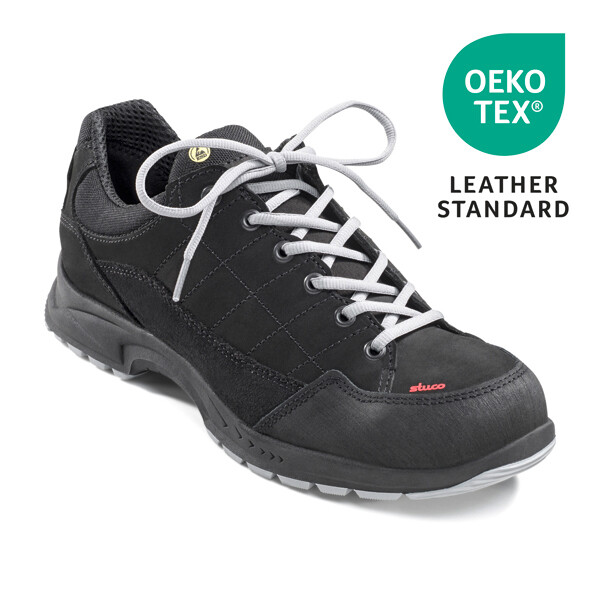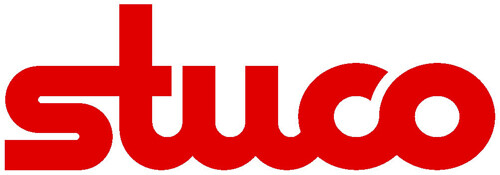
OETI is very proud to feature Stuco in this customer success story. Stuco was founded in 1898 in Switzerland. The company with 120 employees produces safety shoes and professional footwear for all industries and applications.
With four sales locations in Switzerland, Austria, Germany and Hungary, Stuco is now the first manufacturer in the world to have EN ISO 20345-approved safety and EN ISO 20347-approved professional footwear certified with the OEKO-TEX® LEATHER STANDARD. An OEKO-TEX® STANDARD 100 certification for a model series with an upper made of purely textile material will be completed shortly.
We conducted the interview with Mr. Rene Höller - Managing Director of Stuco GmbH Austria and responsible for this OEKO-TEX® certification and Mr. Claude Martin - Chairman of the Board of Directors of Stuco AG, responsible for marketing and product management.
1. What are your philosophy and strategy for the quality assurance and/or sustainability of your products?
At Stuco, the phrases environmental protection, sustainability, product safety and social issues are more than just words on a certificate. They have always been a key element of the company philosophy. With the certification OEKO-TEX® LEATHER STANDARD and subsequently OEKO-TEX® STANDARD 100, we are once again intensifying our efforts to make the products even safer for users. The successful certification proves that we are on the right track. When you buy Stuco shoes, you know you’re always getting uncompromising quality, strong social responsibility and sustainable environmental awareness – but certainly no ingredients that are hazardous to your health.
Rene Höller, Managing Director of Stuco GmbH Austria, who is also in charge of this OEKO-TEX® certification
OEKO-TEX® LEATHER STANDARD
2. Why did you pursue the OEKO-TEX® LEATHER STANDARD certification?
The motto is ‘fair and safe products’. Our customers want to know how and where the product was made and whether it is safe for their health. Stuco has always produced 100% of its shoes in its own factory in Europe – so it’s clear ‘where’ they originate.
With the OEKO-TEX® LEATHER STANDARD certification, we now have proof in our hands that Stuco also always thinks about ‘how’ they are made. With the certification, we also want to set ourselves apart from cheaply produced goods from the Far East that are questionable in terms of health.
3. What advantages do you see in this product certification?
The OEKO-TEX® LEATHER STANDARD and OEKO-TEX® STANDARD 100 certifications reconcile the issues of product quality and product safety.
Although our products and materials were already tested and certified according to current EN ISO standards, various materials had to be additionally tested because the OEKO-TEX® criteria go much further than REACH, for example. OEKO-TEX®testing is based on a catalogue of criteria with several hundred individual substances. These test criteria are often stricter than nationally and internationally applicable specifications.
4. What do you think the OEKO-TEX® LEATHER STANDARD certification can do for other companies in your sector?
Nowadays, the general public is highly aware of environmental protection and sustainability issues, which makes them more topical than ever. As already mentioned, customers want to know where and how the product was manufactured. The OEKO-TEX® LEATHER STANDARD can reassure customers and thus give companies a competitive edge over cheaply produced mass goods.
5. Exciting facts about the certification process: Did anything stand out? Was anything particularly exciting? Where were you already well positioned? Where did you need to contribute more?
The certification process at OETI is structured as a continuous dialogue between the testing institute and the client. This means that any errors that arise can still be corrected during the certification process in order to maximise quality. We really appreciated this flow of information.
It was interesting to see the scope of testing and how intensively we engaged with our own product again. We also learned a lot about ourselves and added another milestone for product quality and product safety to our sustainability strategy.
Claude Martin (Chairman of Stuco AG, in charge of marketing and product management)
OEKO-TEX®
6. Are you planning to implement OEKO-TEX® STeP? If so, why?
We have considered the possibility but have not made a final decision yet. We already have ECOVADIS, Amfori BSCI, ISO 14001 and ISO 9001 certifications. Therefore, we currently believe that we’re in good shape in terms of sustainable manufacturing.
OETI
7. How do you rate the collaboration with OETI?
As this was a pilot project, many aspects were new to both parties. Initially, we found the approach rather unusual. However, as things progressed and after intensive discussions, we found the collaboration to be very productive and constructive. The positive result is now well known.

Company information
- Year founded – 1898 (Stuco AG)
- Production site – Hungary
- Sales locations: Four sales locations in Switzerland, Austria, Germany and Hungary.
- Number of employees - 120
- Our satisfied customers include several national and international corporations as well as small and medium-sized enterprises and private individuals at home and abroad. In short: all feet are important to us!
- www.stuco.com

